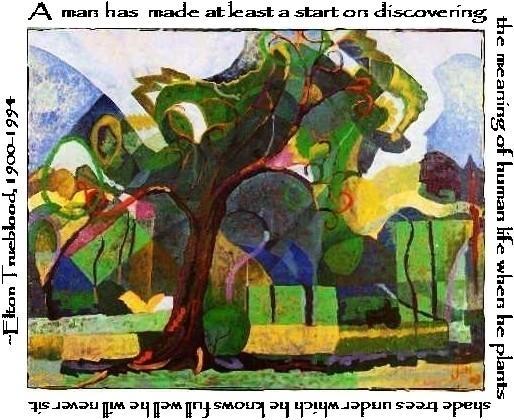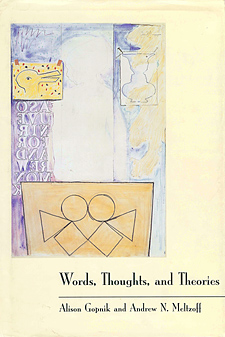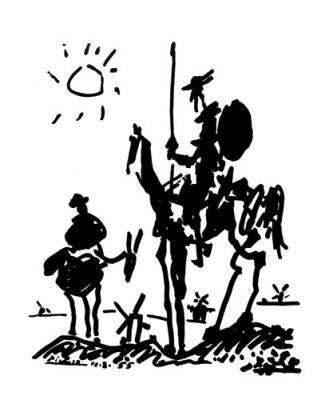

|
How did we get so lost? How do homing pigeons do it? How do dogs find their way home from hundreds of miles away, and how do salmon find the creek they were born in after living thousands of miles away in the ocean for four years? How do bees tell each other where the pollen is? The current hypothesis is that this must involve the earth’s magnetic field, even though biologists have yet to locate a magnet inside an animal or elucidate how living cells detect magnetism. Even if magnetism is a key, questions remain: The earth’s magnetic field is drifting over a period of decades, and is hardly stable over evolutionary time. Tiny tracking devices are available to attach to birds’ legs and fish’s backs, so there is a great deal of data, and yet we don’t know even the rudiments of how they do it. Stars? Polarized light in the sky? Memorized landscapes? All these cues seem to have a role to play. People seem to be much worse than animals with navigation skills. But perhaps it is a skill we have lost with the habits of mind we learn in school. Native and aboriginal people can still do it, even if they can’t tell us how. Thomas Alerstam Science Magazine review from 2006. |
1 September 2009
|
|
Insight of Morning Hours Natural inclination — Andreas Embirikos, born this day in 1901, wove psychology and surrealism into sensual poems and a gigantic novel. In the nineteenth century, intellectual rebellion against constraints of the enlightenment took the form of romanticism and transcendentalism. In the 20th century, it was surrealism. |
2 September 2009
|
|
Expectations ‘No doubt there are few positions in life that do not throw together some persons who are there by virtue of failure and other persons who are there by virtue of success.’ |
3 September 2009
|
|
Getting out of the way of the thing we want most Hypnotherapist Judith Acosta, writing for OpEdNews, tells us that ‘pursuit of happiness’ gets it all wrong. We can pursue prosperity or comfort or status in our communities, but happiness is not closely related to any of these things, and is, perhaps, suppressed in the attitude we adopt in order to ‘pursue’ anything. ‘Happiness is secondary to purposefulness, service, and love...It comes when (and maybe even because) we are busy doing something else that we love, giving something to someone we love, or serving some cause that fulfills the reason for our being here.’ Drake Bennett, writing in the Boston Globe, reports on new research in economics which tells us that perhaps money can buy happiness, but only as we give it away. ‘Money makes you most happy if you don’t spend it on yourself.’ |
4 September 2009
|
|
Physicist and mystic Don’t imagine that science is antagonistic to mysticism. The
mechanistic view of the world that prevailed from Newton through the
19th century may have allowed little room for miracles; but 20th century
physics leaves plenty of scope for the imagination and is even
suggestive of cosmic unity. Pauli found a sustaining perspective in Jung’s interpretation of his struggles. Jung was fascinated by Pauli’s dreams, which he declared to be rooted in the collective unconscious. David Lindorff wrote about their relationship several years ago, and more recently Arthur I. Miller has come out with his own book. |
5 September 2009
|
|
Haiku Familiar backyard — Josh Mitteldorf |
6 September 2009
|
|
“Labor wants also pride and joy in doing good work, a sense of making or
doing something beautiful or useful – to be treated with dignity and
respect as brother and sister.” — Thorstein Veblen |
7 September 2009
|
|
What to believe Stem cells can grow into new nerves or heart walls or blood vessels to replace damaged body parts. Stem cells are in short supply in our bodies, because once a stem cell differentiates into a specialized cell, there is no going back Cell biologists have been working furiously the last 10 years to create human stem cells. If they could turn differentiated cells back into stem cells, then medical labs could take a few drops of a person’s blood and turn it into a magical healing elixir. This project is progressing nicely at Harvard, Kyoto, La Jolla and elsewhere. I spoke yesterday with Dr Ilham Abduljadayel who claims to be 20 years ahead of her colleagues. She says she has been making ‘ips cells’ (induced pluripotent stem cells) from blood cells since 1990, and since 2004 she has run clinics in several Arab countries, curing some people of degenerative diseases, and helping others to heal from burns or injuries. If true, this is fascinating, and I would want to learn all about how she does it. How do I decide whether to take the time to investigate her extraordinary claims? I become aware of social cues that I use routinely to evaluate a person’s credibility, and I realize how culture-bound are all my skills in this area. The world is full of fascinating and unexpected phenomena that can change what I think is possible. I can’t investigate them all, but I can keep an open mind, remembering that all I think I know is tentative. |
8 September 2009
|
|
The workers who laid the cornerstones for a European cathedral may
have guessed that the construction would not be completed in time for their
grandchildren to worship there. Are there any projects in which we have
enough faith to invest, knowing that the first fruits will be harvested
a hundred years hence? What would it cost to build a 13th century
cathedral in the 21st century? It is a weakness and also a strength of modern society that we are more diverse, less doctrinaire in our beliefs. It is more difficult to get great swaths of humanity to sacrifice their labor and their freedom for an inculcated idea. As science teaches reasoned skepticism to some, it offers ever better techniques of indoctrination and mass manipulation to others. When anthropologists of 5,000 years hence sift through our artifacts to
discover what was most important to us, what will they work with, and
what will they conclude? |
9 September 2009
A.D. 1258
2400 B.C.
|
|
Quote by Elton Trueblood | Art by Jennifer Hathaway |
10 September 2009 A man has made at least a start on discovering the meaning of human life when he plants shade trees under which he knows full well he will never sit. — Elton Trueblood |
|
Dragged from familiar distractions It’s not just pigeons.
Most animals can find their way around, and
can point toward home, even when transported blindfolded to a new
location. Behavioral scientists haven’t worked out how they do it; but
clearly it doesn’t involve the kind of geometrical calculation and
map-making upon which humans rely. My hypothesis is that humans have a
latent sense of direction, but it has fallen into disuse, as we have
learned not to pay attention to it. Cues from our animal navigation
system may still be available beneath the level of conscious perception.
(Perhaps we should be studying the navigation of indigenous peoples.) |
11 September 2009
|
|
Have you ever said Yes to one joy? O my friends, then you also said Yes to all pain Immanence, derived from the Latin in manere—‘to remain within’—refers to philosophical and metaphysical theories of divine presence, which hold that some divine being or essence manifests in and through all aspects of the material world. (Wikipedia) A worthy touchstone to arbitrate between worldviews immanent and transcendent is the désir d’éternité, the “desire to gather together the scattered moments of meaning into some kind of whole.” According to Charles Taylor, who adduces this touchstone, only transcendence has a satisfactory response to its longing: personal immortality. What response, if any, remains for immanence? Must it invent comic masks to hide the frown of an indifferent world? Must it surrender everything to the river of a senseless time? Must it be mute before the anguish of the bereaved? In this essay on Nietzsche’s solution to the problem of death, Patrick Lee Miller makes a case for Nietzsche’s theme: that all that we value is made meaningful by the finite context of our lives: Have you ever said Yes to one joy? O my friends,
then you also said Yes to all pain as well. All things are enchained,
entwined, enamored — if ever you wanted one time two times, if ever you
said: ‘I like you happiness! Whoosh! Moment!’ then you wanted everything
back. Is this the ‘sour grapes ’ phenomenon, or ‘making a virtue of necessity’? Yes, life needs to be finite—in fact infinity is only an abstraction, utterly outside our experience or even our imagining. But why so short? Would it spoil some vast, eternal plan if I were to live 50,000 years, watch many generations of grandchildren develop their own ideas, see the world transformed by unimaginable technologies, and humans evolve through many stages? I must admit that a lot of things would have to be different... (—JJM) A moment is joyful because it is meaningful: being the first member of your family to graduate from college, seeing your newborn child for the first time, finishing the work of art that says everything you wished it would say, and more. But these moments of joy are so meaningful because they are moments in a narrative: a story of financial and familial struggle survived, or of illness and dark nights of the soul overcome...moments must be embedded in finite narratives, narratives of risk and therefore tragedy, circumscribed by death. To love such a moment fully is to love the narrative that constitutes it; and to love such a narrative fully is to love the world in which that narrative unfolds. If Zarathustra be believed, if he be followed as a prophet of immanent spirituality, we must love the whole world, with its pain, illness, betrayal, death. Perhaps this is a world without end, in which case it would seem that infinity has returned in an immanent form, but this cosmic infinity nonetheless maintains the human finitude necessary for our meaning, joy, and creativity. |
12 September 2009
|
|
busy = numb It’s the American legacy of Henry Ford: Human time is to be structured scientifically to best effect. We may have various opinion about what are the most worthy goals or the most promising paths toward those goals, but surely we cannot argue with the principle that efficiently directing our time in pursuit of those goals is better than thoughtless and haphazard use of our time. ...except that people whose cultures lead them to ‘use’ time are so often miserable, while cultures in which time is to be ‘inhabited’ support a deal more joy – despite the substantial increment in material prosperity that the efficient use of time affords. Somewhere along the way, ‘efficient use of time’ has turned from a strategy to an obsession, and we have ceased to question that it is good for our time to be tightly structured. Experiment with less busy. Endure the initial boredom and anxiety of a low-stimulus environment, and see if you break through to a deeper peace. Re-sensitize yourself to the world of activity and creative effusion that is within you. — Josh Mitteldorf |
13 September 2009
|
|
Repeat after me: Man does not occupy a privileged place in the Universe... Before the Copernican revolution, the prevailing view was that this universe is our universe, with man at the center. How embarrassing that serious scientists and philosophers were so self-important! But in the twentieth century, it may be that physical cosmology has made the opposite mistake: it is a matter of faith more than of evidence that the universe is homogeneous on a large scale, so that the vista from every vantage looks just about the same as every other. This is an assumption that arose when Einstein in 1917 was faced with the formidable task of solving the field equations of General Relativity. The equations are absurdly intractable, and can be solved only for the most trivial kind of geometry. So he solved the very simplest case, and assumed that the Universe was the same at every point. Einstein actually thought it a reasonable assumption that stars were uniformly distributed throughout the universe. Galaxies were still unknown! Edwin Hubble discovered just a few years afterward that our Milky Way is one galaxy among many. For awhile it was assumed that galaxies were uniformly distributed through space; but then surveys of the sky showed that galaxies tend to come in clusters. Perhaps clusters of galaxies are uniformly distributed in space, then? But no – galaxies appear to be hierarchically clumped together on the largest scales we can observe. What justification remains for regarding the Universe as homogeneous? The 3 degree cosmic microwave background radiation is thought to be a fossil from the era of the Big Bang, and the CMB varies only very slightly as you pan across the sky. Whew! But then, a few years ago, Kate Land and João Magueijo of Imperial College London demonstrated a statistical alignment of the irregularities in the CMB. They called it the ‘axis of evil’, and it has since been confirmed by other observers. It’s not quite enough to send us back to solve those messy Einstein field equations. Cosmologists are still solving the equations they know how to solve. Maybe the keys really were under the lamp post all along! Meanwhile, cosmological theory has become burdened with dark energy and other articles of faith that make the theory quite vulnerable and ripe for new ideas; but if Einstein himself couldn’t solve those equations, who are we... |
14 September 2009
|
|
the apotheosis of cognitive dissonance It’s not so much that we care for children because we love them as that we love them because we care for them. |
15 September 2009
|
|
Do we dream of romantic love because community has failed us? The couple is like the final stage of the great social debacle. It’s the oasis in the middle of the human desert. Under the auspices of “intimacy,” we come to it looking for everything that has so obviously deserted contemporary social relations: warmth, simplicity, truth, a life without theater or spectator. But once the romantic high has passed, “intimacy” strips itself bare: it is itself a social invention, it speaks the language of glamour magazines and psychology; like everything else, it is bolstered with so many strategies to the point of nausea. There is no more truth here than elsewhere; here, too, lies and the laws of estrangement dominate. And when, by good fortune, one discovers this truth, it demands a sharing that belies the very form of the couple. What allows beings to love each other is also what makes them lovable, and ruins the utopia of autism-for-two... From flirtation to divorce, from cohabitation to stepfamilies, everyone feels the inanity of the sad family nucleus, but most seem to believe that it would be sadder still to renounce it. The family is no longer so much the suffocation of maternal control or the patriarchy of beatings as it is this infantile abandon to a fuzzy dependency, where everything is familiar, this carefree moment in the face of a world that nobody can deny is breaking down, a world where “becoming self-sufficient” is a euphemism for “having found a boss.” — translated from an
essay published in France in 2005 by The Invisible Committee, |
16 September 2009
Magritte |
|
Dawn Ecstatic bird songs pound — William Carlos Williams, born this day in 1883 (How would the practice of medicine be different if doctors devoted themselves to poetry (or art or music) when they got home from work?) |
17 September 2009
|
|
The vanity of human wishes Where then shall Hope and Fear their Objects find? — Samuel Johnson the generalist was the giant voice of enlightened reason among English men of letters in the 18th Century. He became depressed, had no place in his philosophy for irrational sentiments, and fancied himself mad. Singlehanded, he gave us the first English dictionary. But Johnson lived larger than his legacy, and bequeathed us most notably the subject matter for the most famous biography in the English language. “Always set high value on spontaneous kindness. He whose inclination prompts him to cultivate your friendship of his own accord will love you more than one whom you have been at pains to attach to you.” — Samuel Johnson, 300 years old today |
18 September 2009
portrait by Joshua Reynolds |
|
What would get me out of my house and into a synagogue? I know what I am supposed to say: a short, well–crafted naturalist liturgy that draws on tradition while honoring science and avoiding supernaturalism; a service punctuated with minutes (rather than moments) of true silence inviting me to realize God rather than talk about God; an honest engagement with Torah that blends cutting edge Bible study (literary, historical, philosophical, etc.) with the mytho-poetic spirituality of scholars and mystics like Joseph Campbell; a sermon that sets out some challenging proposal, and which morphs into an open–ended and passionate discussion among the congregants; and music that is more than just entertaining and professional, but that uses chazanut (cantorial singing), Hebrew chanting, and Hasidic niggunim (melodies) to create opportunities for spiritual awakening and transformation. That’s what I should say. And I wouldn’t be lying if I said it. But I might be thinking wishfully. The truth is, even if all this were offered, I still might stay home. I wonder if the reason Jews don’t go to shul is that they don’t want to; and that even if it was tailor–made for them, they still might not go. I may have simply grown too selfish for shul; too fond of solitude to tolerate community; too comfortable with silence to tolerate words; too taken with my own ideas and those of the scholars I read and study to entertain the ideas of others. In short, I may be too full of myself to make room for others. I actually prefer davvenen (praying) alone. I will get up at dawn tomorrow (Rosh haShanah morning) and walk for miles along the banks of Stones River. I will talk with God, and sing to Her. I will review and give thanks for the year just past, and free myself as best I can to welcome the year about to unfold. I will, Shabbos aside, do tashlich and symbolically toss all I needlessly cling to into the water, inviting freshness into my life. And then I will go home, shower, and study Torah the rest of the day. My minyan (prayer quorum) will be the trees of the forest, and among my rabbis will be Martin Buber and Baruch Spinoza. I will be alone with my books, my thoughts, and my life. This isn’t very Jewish, I know. And some will think it very sad. But I will be quietly happy. True, if a few people, a minyan even, wanted to join me, I would enjoy that as well. But all the Jews I know will be in shul. Somebody must be doing something right. — from the blog of Rami Shapiro |
19 September 2009
|
|
Asking for help All religious and moral philosophies agree on the basics of human morality: help other people, don’t hurt them. Why is it that there is so little agreement on the particulars? If people’s needs were predominantly physical (food, clothing, shelter) then it would be easy to define what behaviors constitute helping and which constitute hurting. It’s the complexity of human psychology that makes it so hard to know what to do most of the time. An offer of help can appear imperious. An honest expression of need can be disarming or even empowering. Of course we can reach out to others by offering to help. But ironically, it is often a more effective icebreaker to reach out by asking for help. Offering help can make the other person feel beholden. No matter how sincere the generosity behind it, the gesture risks a response of suspicion if the relationship is not already strong enough to support the expectation of unselfish aid. Asking for help puts you in a vulnerable position, and allows your new friend to feel generous. Of course, it works most reliably if what you’re asking is of genuine benefit, yet is easy and convenient for the other. But sometimes asking someone genuinely to go out of his way for you can be a powerfully open way to begin a friendship, or to deepen an acquaintance. Even better than asking for help or offering help is to find opportunities for synergy. What mutual project can we pursue more effectively if we cooperate and coordinate than if we both went about it separately? Someday we will live in a community that actually encourages human contact, with a culture that is more supportive of cooperative relationship. Until that time, we find opportunities where we can to reach through alienating social norms and make human contact. – Josh Mitteldorf |
20 September 2009
|
|
Today is Peace One Day Peace does not happen because we bear no ill will to any other person. Peace does not happen because we are tolerant and forbearing. Peace comes when the deceptions, distortions and defamations that are used to create hostility are publicly revealed. Peace comes when we demand an end to war. Filmmaker Jeremy Gilley has done what he could. Now it’s our turn. Governments create war. |
21 September 2009
|
|
Mathematical horror show The structure of a Bach fugue seems so tightly determined as to be inexorable. The amazing thing is that within this structure he is able to create such extraordinarily human drama. Two centuries later, in a very different style, Bartok was able to perform a similar feat. His music also is tightly structured, while taking the listener on a satisfying journey. On this page, Larry Solomon expertly pulls apart the Music for Strings, Percussion and Celesta by Bartok and shows us patterns that make the notes seem almost mathematically determined. And yet, when we listen, the drama unfolds with all the haunting drama of a Hitchcock movie. Listen to opening fugue of Music for Strings, Percussion and Celesta as performed by Charles Dutoit and the Montreal Symphony |
22 September 2009
|
|
Reading Sartre to a Pear Tree When I was pruning a dead limb |
23 September 2009
|
|
Spreading the work around Fancy a three-day weekend – not just once in a while but week in week
out? It was the crash of 1929 that led to the five-day week. ‘Before that, it was common to work six-day weeks with 12 to 14-hour days. When the Great Depression hit, the idea was to share work around to get more people into employment.’ [Rex Facer of Brigham Young University] —from a New Scientist Article by David Cohen I find this quite plausible. Unemployment is a far greater
problem than underproduction in the West, and vast resources are wasted
in competing for scarce jobs, which is a zero-sum game. |
24 September 2009
|
|
Transcending self Love is, in fact, an intensification of life, a completeness, a fullness, a wholeness of life...Life curves upward to a peak of intensity, a high point of value and meaning, at which all its latent creative possibilities go into action and the person transcends himself or herself in encounter, response, and communion with another. It is for this that we came into the world—this communion and self-transcendence. We do not become fully human until we give ourselves to each other in love... I cannot find myself in myself, but only in another... Love is not only a special way of being alive, it is the perfection of life. He who loves is more alive and more real than he was. —from Love and Living, posthumously edited from the writings of Thomas Merton |
25 September 2009
|
|
“If you aren’t in over your head, how do you know how tall you are?” — T. S. Eliot, born this day in 1888 “Most of the trouble in the world is caused by men wanting to be important.” |
26 September 2009
|
|
The American Dream Let those whose work is to establish a predictable stasis for
themselves and their families toil on. For my part, I will strive to grow
my own resourcefulness and the resilience of my community, to create a
tolerance for ambiguity, and relish of an uncertain future. I dreamed I was on a roller coaster, curled up with
eyes gently closed. I opened my eyes and sat up to find the cushion to
which I was clinging detached in my hand, my body flying through space
amid the latticework. I awoke in the air, thrilled that I was able to
dream this without the terror of a nightmare, only to find that I was
still dreaming, and the house was full of children and parents who had
spent the night spread out on my living room floor. The only bathroom
was a construction site, through which we moved in twos and threes.
Pancakes, anyone? |
27 September 2009
|
|
Litany O Lord, of Thy heavenly bounties deprive me not. Listen to Litany of Arvo Pärt, performed by Hilliard Ensemble and Tallinn Chamber Orchestra under Tonu Kaljuste |
28 September 2009
|
|
Impossible dreams “One man scorned and covered with scars still strove with his last
ounce of courage to reach the unreachable stars; and the world will be
better for this.” “Too much sanity may be madness and the maddest of all, to see life as it is and not as it should be.” |
29 September 2009
|
|
(in case you were wondering) You are the future, |
30 September 2009
|




























